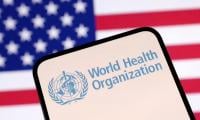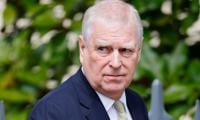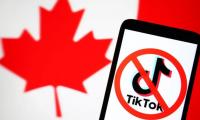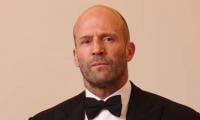Swiss voters firmly back Covid pass law; UK to enforce new Covid rules from Tuesday; Online conspiracies fuel Dutch Covid unrest
The Hague: When Covid riots rocked the Netherlands for the second time in a year, Ricardo Pronk was there to livestream it all to his followers on social media.
The 50-year-old anti-vaccination activist administered a Facebook group with 10,000 followers, which had shared a call for a demonstration in the port city of Rotterdam on November 19 that later turned violent.
The group, which was recently removed by Facebook, is part of a network of conspiracy theorists and Covid-deniers on social media reaching as far as the Dutch parliament, whose influence has sparked concern among experts.
For Pronk, vaccines "are weapons made to kill". He also embraces the QAnon conspiracy group’s narrative about "satanic child abuse" by a "globalised elite". But the unemployed former computer technician, who had chosen a banner for the group with a lion against a backdrop of flames, rejects any responsibility for the unrest in the Netherlands.
Five people were shot when police opened fire in Rotterdam, and riots spread around the country for the next three days. "Violence is not the best way, of course not. The best is to do things peacefully," he told AFP.
Both in January, during the Netherlands’ worst riots in 40 years over a curfew, and last week’s unrest, social media were used not only to organise protests, but also to spread disinformation.
"What is unique about the Netherlands is that we have repeatedly seen Covid protests turn into riots just this year," said Ciaran O’Connor, an analyst at the Institute for Strategic Dialogue in London, which specialises in countering radicalism.
While Prime Minister Mark Rutte has branded rioters "scum" and "idiots", O’Connor pointed the finger at the epidemic of conspiracy theories on the internet in the Netherlands. On Facebook alone, the top 125 groups disseminating false information about Covid-19 saw a 63-percent rise in followers in six months, comprising 789,000 members in this country of 17 million people, an ISD study said.
Telegram groups during last week’s riots were filled with plans for demonstrations, calls for riots, along with messages targeting Muslims, Jews and gay people. The social media groups "usually don’t call for violence but they may accept it as part of the solution", said O’Connor.
"The anti-vax and anti-Covid movement is creating a space allowing for other forces to engage and express their frustration in a violent way." Dutch authorities blamed the riots on a variety of culprits, ranging from frustrated youths to football hooligans and genuine coronavirus protesters -- but they also underlined the importance of social media in organising them. In June, Dutch intelligence services said they feared that anti-government demonstrations "are a breeding ground for extremism".
In a country where 85 percent of adults are vaccinated, the anti-vax movement "is a clear minority group", said Claes de Vreese, professor of political communication at the University of Amsterdam.
But unlike in neighbouring countries, "their voice has been strongly amplified by the fact that they have found a political ally in parliament", namely the Forum for Democracy party. The leader of this far-right group, Thierry Baudet, has largely dropped his anti-immigration rhetoric to adopt a strong anti-vaccination stance and to promote conspiracy theories.
Meanwhile, the Swiss voters have firmly backed the law behind the country’s Covid pass, according to projections following Sunday’s referendum after an unusually tense and hostile campaign.
Shortly after the polls closed at noon (1100 GMT), market researchers GFS Bern, who conducted the main polling throughout the campaign, projected that 63 percent of voters had backed the "yes" vote.
The law provides the legal basis for the so-called Covid certificate, indicating that a person has been vaccinated or has recovered from the disease. Opponents have said the certificate, which has been required since September for access to restaurants and other indoor spaces and activities, is creating an "apartheid" system.
As in much of Europe, Switzerland has seen growing anger over restrictions aimed at reining in the pandemic, and pressure to get vaccinated. In a related development, Britain’s government on Sunday defended the pace and scale of its response to the new Omicron strain of Covid-19 against criticism that it was again falling behind the curve.
Health Secretary Sajid Javid said mandatory mask-wearing will return to shops and public transport in England on Tuesday, and told families to plan for Christmas "as normal", despite new rules to combat the Omicron variant. Also from Tuesday, all passengers arriving in Britain are being instructed to take a PCR test for Covid-19, and self-isolate until they register negative.
-
 US To Exit WHO: A Seismic Shift In Global Health?
US To Exit WHO: A Seismic Shift In Global Health? -
 Palace Staff Reveals Nothing Has Changed For ‘disgraced’ Andrew After Losing Titles
Palace Staff Reveals Nothing Has Changed For ‘disgraced’ Andrew After Losing Titles -
 How Did Taylor Swift Cope With ‘exhausting’ Sickness During Popular ‘Eras Tour’
How Did Taylor Swift Cope With ‘exhausting’ Sickness During Popular ‘Eras Tour’ -
 Artists Launch ‘Stealing Isn’t Innovation’ Campaign Against AI Use
Artists Launch ‘Stealing Isn’t Innovation’ Campaign Against AI Use -
 Elon Musk’s XAI Grok Imagine Now Generates 10-second Videos With Sharper Quality: Here’s How
Elon Musk’s XAI Grok Imagine Now Generates 10-second Videos With Sharper Quality: Here’s How -
 Gaten Matarazzo Reveals Having A Gripe About Unfair Treatment On 'Stranger Things'
Gaten Matarazzo Reveals Having A Gripe About Unfair Treatment On 'Stranger Things' -
 Jeff Bezos Vs Elon Musk: Blue Origin Enters Satellite Race To Rival Starlink
Jeff Bezos Vs Elon Musk: Blue Origin Enters Satellite Race To Rival Starlink -
 Charlie Puth Explains Why He Went Against His Own Words About 'Hero'
Charlie Puth Explains Why He Went Against His Own Words About 'Hero' -
 Popular Weight-loss Drugs Could Help Treat Addiction
Popular Weight-loss Drugs Could Help Treat Addiction -
 Brooklyn Beckham In ‘terrible Spot’ Like Prince Harry After Airing Family Drama
Brooklyn Beckham In ‘terrible Spot’ Like Prince Harry After Airing Family Drama -
 A$AP Rocky Reveals Real Reason Behind Feud With Drake
A$AP Rocky Reveals Real Reason Behind Feud With Drake -
 Stroke During Pregnancy Linked To Long-term Heart Problems
Stroke During Pregnancy Linked To Long-term Heart Problems -
 Trump Backs Off European Tariffs Threat After Reaching ‘framework Of A Future Deal’ On Greenland With NATO
Trump Backs Off European Tariffs Threat After Reaching ‘framework Of A Future Deal’ On Greenland With NATO -
 South Korea Passes World’s First Comprehensive AI Law, Reshaping Global Regulation
South Korea Passes World’s First Comprehensive AI Law, Reshaping Global Regulation -
 ‘Disgraced’ Andrew’s New Demands Exposed As He Moves Out Of Royal Lodge
‘Disgraced’ Andrew’s New Demands Exposed As He Moves Out Of Royal Lodge -
 Court Allows TikTok To Operate In Canada Pending Review
Court Allows TikTok To Operate In Canada Pending Review



